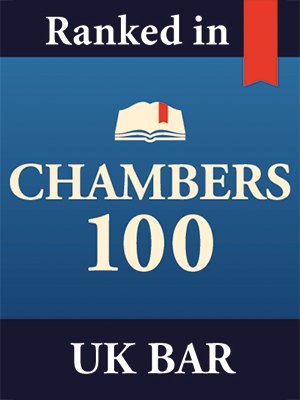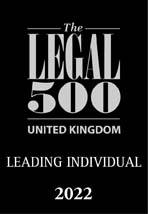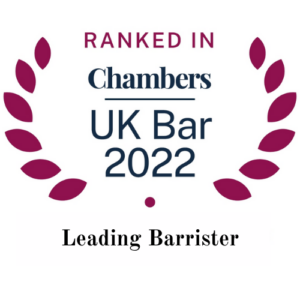“The day we started our business, we were such good friends; I thought this was it … we’d both be millionaires!
The business was really doing well – we had work coming at us from every direction.
And then, six years since we incorporated, almost imperceptibly, the cracks started to appear. The trust seemed to ebb away. Now, it has gone altogether, and I feel we are at war”.
The above is a scenario you probably never anticipated. When business relationships start out it can be difficult to envisage things ever turning sour. Why would you expect and plan for the worst to happen? The start of a new business venture is an exciting and motivating time. More often than not, business relationships are forged out of a passion and a shared vision of what can be achieved.
Unfortunately, things don’t always stay that way. Once the ‘honeymoon period’ is over, it’s quite common for cracks to start to appear. For some, these can be filled or at least papered over with little long-term impact but for others those cracks start to deepen. When that occurs, it can have serious consequences for you and your business.
Shareholders, directors and partners fall out for a multitude of reasons. Typically, these might involve the diversion of business opportunities or the misappropriation of funds or assets. Perhaps someone has been caught with their “fingers in the till”. Sometimes one person may feel they are being excluded or left out of business decisions. Such scenarios feel unfair and prejudicial. Though the cause of the relationship breakdown may differ from case to case, the route to resolution is what’s important here; and there are several key stages to getting there.
Do you have a shareholders’ agreement already in place?
I always recommend those involved in business together ensure that they have a properly prepared shareholders’ or partnership agreement in place from the outset. It will help to define shareholder or partner responsibilities, assist in the smooth running of the business and provide a mechanism for effective resolution of any disputes that might arise. Perhaps even more importantly, the presence of a decent shareholders’ or partnership agreement can actually help reduce the chances of future conflict.
It may now seem like a far and distant memory but, when you first entered into your business relationship, did you actually enter into a shareholders’ or partnership agreement? Perhaps you were keen to have an agreement in place from the outset. You may have had one drawn up on a recommendation. You might simply have had one prepared because it felt like the right thing to do.
If so, it is really important to familiarise yourself with its contents. It’s crucial you understand the details of any agreement that you have entered into and how it might affect or provide a route to the resolution of any dispute you might find yourself in.
Get experienced specialist legal advice
Take legal advice early on. Engaging a specialist and experienced barrister might well be the cheapest and best way of ensuring that the route to resolution is as seamless and stress-free as possible.
You can get advice from an experienced specialist barrister directly and without the cost of engaging a solicitor. Very often the fees of barristers, who face limited overheads that need to be covered, are substantially less than those of solicitors and you will be getting advice straight from the “horse’s mouth”.
A specialist and experienced barrister will be able to identify any provisions in a shareholders’ or partnership agreement (including any concerning the exit of a participant) that might assist you. Your barrister will be able to give you a clear understanding of what impact they may have and advise on the next steps to take to achieve a resolution.
What might those next steps look like?
Commonly a shareholders’ or partnership agreement will include provisions that can be used to resolve such disputes or will, at least, set out procedures for doing so.
Typically these might require one shareholder to sell their shares, cease to be a director and leave the company. But the process of removing a shareholder/director from the business can be complex and great care is required to avoid it backfiring. Again, a specialist barrister will be able to advise as to the options available and the procedures to be followed.
While complications can arise, having one shareholder walk away from the business receiving a fair value for his interest can often be the most straightforward solution. Indeed, in my experience, shareholder disputes can often be resolved in this way quickly, at a limited cost and in a way that minimises disruption and damage to the business.
What if there is no agreement in place?
A surprising number of businesses don’t have any shareholders’ or partnership agreements in place. If you are in that position, all is certainly not lost.
Again seek early specialist advice from someone experienced in the resolution of these disputes who can guide and navigate you through the process towards resolution.
Initially, you will need to consider negotiation or mediation as strategies to try to achieve workable compromises while keeping relationships as amicable as possible. Your barrister should advise you on the best approach to take and what you might realistically hope to achieve in your particular circumstances. It is nearly always preferable, from time, money and minimal business disruption perspectives, to achieve resolution in this way rather than through the courts.
In other cases, litigation may be inevitable. It may be the only way to achieve a resolution. It may provide the catalyst that gets everyone talking sensibly. Generally, this begins with pre-action correspondence which may itself lead to resolution early on. If not, it may be necessary actually to issue proceedings and follow the litigation process, which involves an exchange of statements of case, disclosure of documentary evidence, the provision of witness statements and expert evidence and, eventually, if necessary, a trial and a determination by a judge. However, it’s important to be aware that settlement can be achieved at any time during this process, and very few cases actually go so far as reaching a trial and a determination by a judge.
Once again, you should turn to a specialist and experienced barrister who will work with you throughout the entire process from start to finish and ensure that a shareholder or partnership agreement is in place or not, your dispute is resolved amicably, on the best terms and as cost-effectively and as efficiently as possible.
To find out more, please get in touch by calling me on 07718 883094 or emailing andrew.marsden@commercialchambers.org. A thirty-minute initial conversation won’t cost you anything and I’d be very happy to talk you through the options available and to advise on the best route to take.



